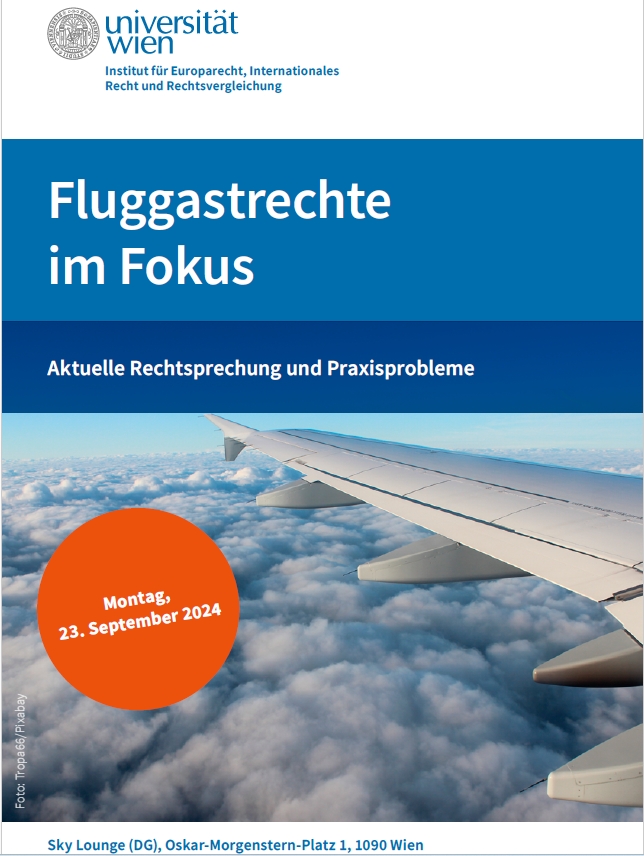News
Focus on Travel Law in Autumn
17. September 2024

As soon as the peak summer holiday season is over, travel law, one of our firm’s areas of expertise, is the focus of a number of top-class conferences:
- September 20-21, Hamburg: Travel Law Day of the German Society for Travel Law (Deutsche Gesellschaft für Reiserecht/DGfR)
- September 23, Vienna: Air Passenger Rights Day of the University of Vienna, sponsored by our law firm and with a lecture by Michael Wukoschitz (“Gleiches ist nicht immer gleich und andere Erkenntnisse aus Luxemburg”)
- September 24-25, Vienna: 35th World Conference of the International Forum of Travel and Tourism Advocates (IFTTA) with a presentation by Michael Wukoschitz (“Package Travel – from a Simple Concept to Increasing Complexity”)
- October 6-8, Lisbon: ESHTE Tourism Congress with presentation by Michael Wukoschitz (“The New Passenger Mobility Package”)
- October 10-11, Trier: ERA Annual Conference on European Consumer Law with presentation by Michael Wukoschitz (“The New Passenger Mobility Package”)



